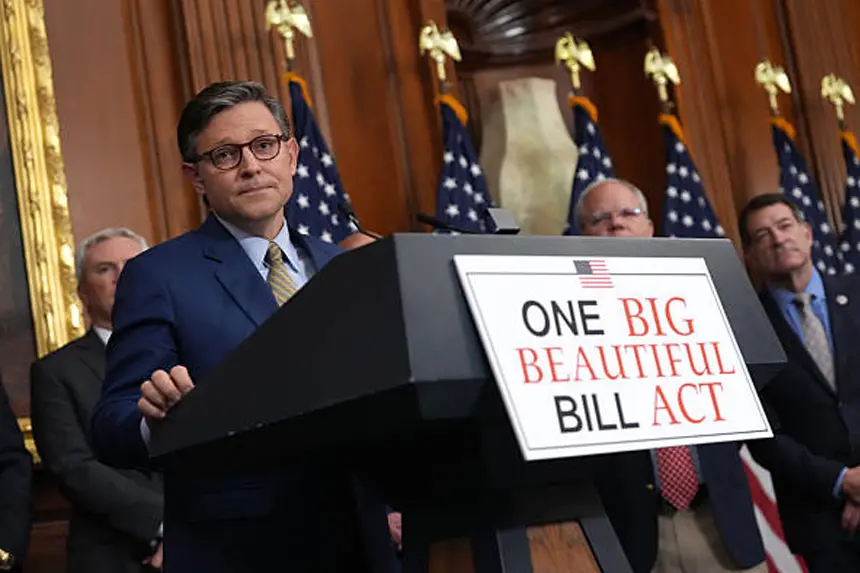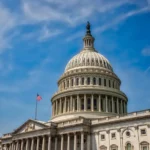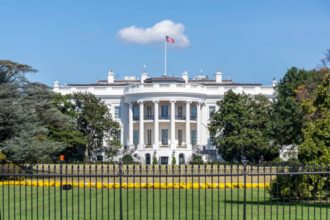After a 24-hour, hectic session, the big, beautiful bill by Trump was passed and was a major but incomplete success for the president. The bill that entrenches some of the key republican interests will now be subjected to final approval by the House of Representatives. A slim majority and party infighting put the House vote either squarely in the second-term legacy of Trump or shreds of his most ambitious legislative endeavour. The result is still doubtful with increased tension on the move towards the final decision.
- What Is the Reason behind the Pressure on the House?
- What are the salient features of the Senate version?
- What Do Fiscal Conservatives Care About?
- How Are Moderate Republicans Balancing Party Loyalty and Voter Concerns?
- What is the Deal with Trump and this Bill?
- What Politically Is at Stake in the House Vote?
- Was it possible that there were still Amendments to make?
- What does the Public Opinion Say?
- Final Thoughts
What Is the Reason behind the Pressure on the House?
An earlier version of the bill had already been passed by the House by a mere margin. The new version presented by the Senate is different, though. It was a bill that the president called a success and said that it was a great one with something that pleases people, but its future in the House is not a clear one, since that is where it awaits. Having a slim Republican majority, a handful of dissidents would stop the bill.
The big, beautiful bill has been a political litmus test for House republicans. A yes vote would give Trump one of the key victory in his legacy whiles a no vote would cripple the enterprise. All of this is heightened by the deadline set by Trump, who plans to sign the bill into law by July 4, which is a symbolic date in the American political arena. Here is the link to our article on Trump Health Cuts
What are the salient features of the Senate version?
The Senate version of the big beautiful bill contains vast changes. It turns the temporary tax reductions implemented in the first term of Trump into a permanent law, considerably increases defense spending, and allocates $70 billion to immigration enforcement activities.
It cuts financing of Biden-era climate activities and dips in Medicaid, a medical lifeline to millions of Americans with low income. Through these reductions, the bill nevertheless adds over 3 trillion dollars to the federal debt and enhances the increase of the borrowing limit by 5 trillion dollars.
The Republicans rejoice over having these provisions; however, some call them overreach in terms of fiscal capability. Such division would be critical to the subsequent of the bill in the House.
What Do Fiscal Conservatives Care About?
The House Freedom Caucus,, one of the loudest on, es already vetoed the version passed in the Senate. They say that it is too much of a deviation from their main principle of spending tight-fistedness.
The ongoing proposal, on their estimates, has the potential to increase the national deficit by up to 650 billion dollars every year. They have come out publicly to say: It is not what we have negotiated. This sums up the anger of the hardliners of the Republicans, who feel that their efforts to cut down the budget have been watered down. Without their help, the chances of the bill passing in the House might quickly fade. Here is the link to our article on Newsom-Trump Clash
How Are Moderate Republicans Balancing Party Loyalty and Voter Concerns?
Although the rising debt is a bother to the conservatives, the centrists have their worries. The extent of the reduction in Medicaid and environmental programs worries many people. Such cuts may not be popular with voters in swing districts, an issue that may have electoral impacts in the hot campaign year.
The original House version was designed with precision along a thin political wire. The Senate transitions do, however, threaten to upset that delicate balance. This puts the moderate legislators in a rough dilemma: either they support the presidential agenda or they safeguard the needs of their district.
What is the Deal with Trump and this Bill?
In the case of Trump, Trump has a massive, beautiful bill, and it is not only a bill but a legacy. He has on several occasions pointed out that the bill focuses on institutionalizing several aspects of his political agenda into law so that even after he leaves office, these parts will continue to be viable.
Such legislation will not be wiped away by future administrations, unlike executive orders. Trump aims that this package should be his permanent change in the American fiscal policy; relaxed regulations and taxes, increased national security, and a message on immigration. A failure to pass it would be much more than a legislative loss, but also a huge symbolic one.
What Politically Is at Stake in the House Vote?
The vote in the House that is coming up may have long-term implications. Once the bill is approved, it will be an indication of a positive internal orientation of the parties under the Trump leadership. Yet should it falter, it may also reveal rising divisions amongst the Republicans themselves – divisions that may ripple through to the 2026 midterms and beyond.
The big, beautiful bill promoted by Trump has become a powder keg. It also points out the existing division between the ideological blocs within the GOP: fiscal conservatives, moderates, and Trump loyalists, who are all trying to go their ways. As soon as Wednesday,, the vote may take place, so the same negotiation window is rapidly closing. All the moves of a legislator will be under consideration.
Was it possible that there were still Amendments to make?
Although technically feasible, additional revisions to the bill would probably extend the process and take the legislation past Trump’s deadline of July 4th. Since the vote is on a measure that is sensitive as far as time is concerned, House leaders might opt to have an up or down vote on the Senate-approved measure.
But when the resistance is still strongly opposed, then the leadership might not have any option but to renegotiate the negotiations. This would put further internal debate at the door, which would cut at the steam of the legislation.
What does the Public Opinion Say?
There is a mixed reaction as depicted in the polls. Tax cuts and the allocation of more money to national security are shown as a positive aspect of the bill by its supporters. Broadly, though, people are concerned about its impact on access to healthcare and national debt. There has been a vocal opposition by environmental groups, health care advocates, and some state officials who argue that there will be a negative impact on the vulnerable populations due to the funding cuts.
There is a good possibility that the moderate republicans who are sitting on the fence may be lured by the wave of public opinion, and this is because of the competitive districts in which some of the republicans are facing reelection.
Final Thoughts
It is time that the House of Representatives takes the fate of Trump’s big, beautiful bill into its own hands. As divisions within the various factions threaten its progress and time ticks on, the next vote will spell out success or political deadlock to the ambitious vision of Trump.
It is not a tax and spending bill, but a test of Republican unity and of the long-term staying power of Trump. Whether the House finds that Trump’s Big Beautiful Bill to be either an anchor of progress or a political gamble, time will tell.








